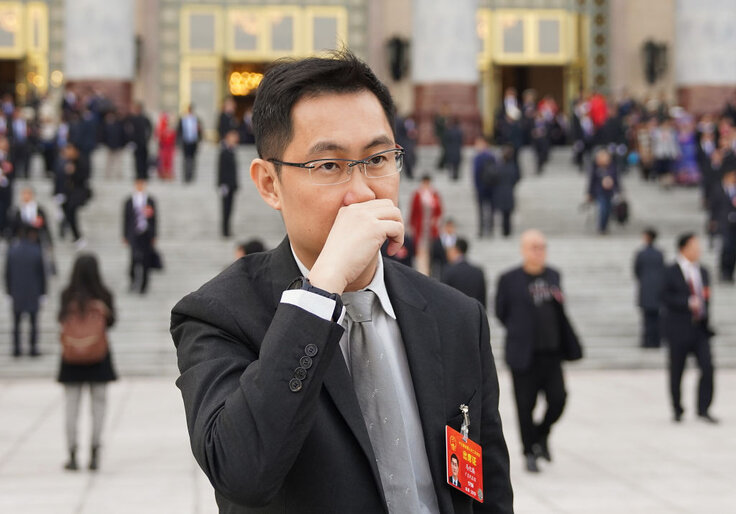Ma Huateng has served on the Yale Center Beijing advisory board since 2015

The founder of Chinese tech conglomerate Tencent—which the Pentagon blacklisted this week over its links to the Chinese military—serves on a prestigious Yale University advisory board and has quietly donated millions of dollars to other Ivy League schools.
Ma Huateng, the second-richest person in China, has served since 2015 on the Yale Center Beijing advisory board, which the Connecticut-based university uses to “form new partnerships with organizations in China.” Ma and Tencent have donated millions of dollars to Yale, MIT, Cornell, Columbia, and Princeton, the Washington Free Beacon has reported.
Those relationships could face new scrutiny after the Pentagon designated Tencent one of several “Chinese military companies” operating in the United States. Tencent, which owns the popular social media app WeChat, has faced scrutiny for years for helping the Chinese Communist Party censor China’s internet and for its central involvement in China’s ambitious plan to dominate the AI industry by 2030.
Sen. Marco Rubio (R., Fla.), President-elect Donald Trump’s nominee for secretary of state, has accused Tencent of engaging in “espionage and censorship” for the Chinese Communist Party and noted that Ma is a member of the CCP. But the Pentagon blacklist is the first time the American government has formally rebuked Tencent—a black eye for the Chinese company that could set the stage for future economic penalties.
Tencent’s shares tumbled 8 percent following Monday’s news. The company has disputed the blacklist, saying it “is not a military company or suppler.”
The relationships with Ma and Tencent could pose challenges for the Ivy League universities, which have faced turmoil over the past year for their tepid responses to anti-Semitic activity on their campuses. And it’s an early test for Yale president Maurie McInnis, who took office in July 2024. Yale has recently faced scrutiny over its foreign funding sources. The school has failed to disclose $15 million in funding from Qatar, the oil-rich Gulf nation that harbors Hamas, the Free Beacon reported.
Ma, who goes by the nickname “Pony Ma,” has used his connections at Yale and other Ivy League schools to advance his company’s ambitions. He attended at least two events hosted by the Yale Center Beijing, and the tech titan met with the dean of Yale’s School of Management in 2017 and 2018 to discuss future “opportunities for collaboration,” according to the school’s annual reports.
Yale Center Beijing has hosted other Tencent executives and Chinese government officials to discuss the future of AI, including at a 2018 event entitled “Artificial Intelligence Development and Policy in the United States and China.” According to a 2021 Pentagon report, China plans to use technology developed by the firm for military and commercial purposes.
Tencent is a “national security risk hiding in plain sight,” according to Craig Singleton, a senior China fellow at the Foundation for Defense of Democracies. Singleton said Tencent, which Ma founded in 1998, serves as an “intelligence gateway” for Chinese intelligence agencies. And its investments in sensitive technology startups in the United States have “amplif[ied] concerns over its potential to compromise critical U.S. sectors and national security,” according to Singleton.
Ma served on the board of the Cornell China Center until last September, according to archived versions of the school’s website. He has used those Cornell connections to advance Tencent’s AI initiatives, including at a 2017 event about the future of AI.
Ma has donated at least $5 million to Princeton and $5 million to MIT through his personal charity, the Ma Huateng Foundation. The Ma Huateng Foundation gave $5 million in grants in 2017 to fund the Princeton Center on Contemporary China’s China Impact Project, which studies how American news media have shaped public perception of China. Tencent’s charity donated $900,000 to Columbia University in 2017.
The Ma Huateng Foundation has also donated undisclosed amounts to Yale and Cornell. Neither the foundation nor the universities did not respond to requests for comment.
Original News Source – Washington Free Beacon
Running For Office? Conservative Campaign Management – Election Day Strategies!
